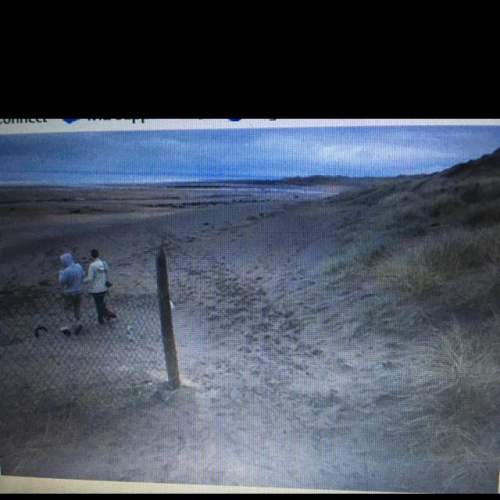
Biology, 20.07.2019 12:00 rosier6244
Whose experiments demonstrated that, given the conditions on the primitive earth, biological monomers could arise spontaneously?

Answers: 1


Another question on Biology

Biology, 21.06.2019 14:30
Why are small quantities of chlorofluorocarbons so harmful to the ozone layer? a. the chlorofluorocarbons act like ultraviolet radiation causing large amount of ozone to be produced. b. the chlorine from the chlorofluorocarbons reacts with free molecules of oxygen causing a stop in ozone production c. free oxygen atoms can replace the chlorine in chlorine monoxide, releasing a free atom of chlorine which can then recombine with an oxygen atom in ozone, destroying more ozone. d. chlorofluorocarbons absorb ultraviolet radiation, preventing the formation of ozone select the best answer from the choices provided
Answers: 1

Biology, 21.06.2019 20:00
How many copies of each chromosomes should be present in each of the 4 final haploid versions of gamete?
Answers: 1

Biology, 22.06.2019 01:00
Put the following processes of protein synthesis in the correct order: - dna strands unwind and separate - mrna copies dna according to complimentary base pairing - trna's anticodons bring amino acids to the corresponding mrna codons - amino acids bind to each other making a protein - mrna leaves the nucleus - a stop codon is reached, the newly formed protein is released to go do its job for the cell
Answers: 1

Biology, 22.06.2019 03:00
Where does all the water go? according to the environmental protection agency (epa), in a typical wetland environment, 39% of the water is outflow; 46% is seepage; 7% evaporates; and 8% remains as water volume in the ecosystem (reference: united states environmental protection agency case studies report 832-r-93-005). chloride compounds as residuals from residential areas are a problem for wetlands. suppose that in a particular wetland environment the following concentrations (mg/l) of chloride compounds were found: outflow, 60.4; seepage, 73.7; remaining due to evaporation, 26.4; in the water volume, 46.8. (a) compute the weighted average of chlorine compound concentration (mg/l) for this ecological system. (round your answer to one decimal place.) mg/l (b) suppose the epa has established an average chlorine compound concentration target of no more than 58 mg/l. does this wetlands system meet the target standard for chlorine compound concentration? yes. the average chlorine compound concentration (mg/l) is too high. yes. the average chlorine compound concentration (mg/l) is lower than the target. no. the average chlorine compound concentration (mg/l) is lower than the target. no. the average chlorine compound concentration (mg/l) is too high.
Answers: 3
You know the right answer?
Whose experiments demonstrated that, given the conditions on the primitive earth, biological monomer...
Questions

Mathematics, 31.03.2021 07:10

Mathematics, 31.03.2021 07:10

English, 31.03.2021 07:10

Mathematics, 31.03.2021 07:10


Engineering, 31.03.2021 07:10

Biology, 31.03.2021 07:20

Physics, 31.03.2021 07:20


Mathematics, 31.03.2021 07:20

Mathematics, 31.03.2021 07:20

Physics, 31.03.2021 07:20

Engineering, 31.03.2021 07:20

Mathematics, 31.03.2021 07:20


Mathematics, 31.03.2021 07:20

Mathematics, 31.03.2021 07:20

English, 31.03.2021 07:20


Mathematics, 31.03.2021 07:20




